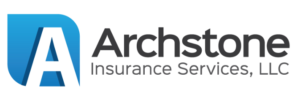20 Terms You Should Know When Shopping for Term Life Insurance
As you research your life insurance options, you might come across various life insurance terms that you haven’t heard before. Our goal is to educate consumers about life insurance so that they can make an informed decision when they are ready to purchase coverage. We decided to list 20 terms you should know when shopping for term life insurance so that you are better informed when researching your coverage options. Knowing these terms will make the process of purchasing life insurance a bit less intimidating.
- Level Premium Term Life Insurance – Level premium term life insurance is coverage that lasts for a specific duration such as 10, 20 or 30 years with premiums that remain unchanged for the entire duration. It is an easy to understand product that is the most cost effective way to provide long term protection.
- Return of Premium Term Life Insurance (ROP) – Return of Premium Term Life Insurance (ROP) is another term life insurance option that allows you to get back all of your premiums if you outlive your policy. An ROP policy will only return the full amount of premiums paid if you keep it for the entire term. If you cancel your policy early, you will receive a smaller percentage of what you paid in.
- Annual Renewable Term Life Insurance (ART) – Annual renewable term life insurance provides coverage for one year and allows the insured to renew overage each year without evidence of insurability. Rates for ART coverage gradually increase each year as you get older.
- No Medical Exam Term Life Insurance – No medical exam life insurance offers the convenience of obtaining coverage without having to take the paramedical exam. In many cases, you can get a decision very quickly. No medical exam life insurance comes in different forms such as simplified issue and guaranteed issue.
- Underwriting – Underwriting is the process which the insurance company uses to classify you in terms of your insurability. Life insurance companies use the application, paramedical exam and other 3rd party sources to determine your risk classification. The insurance company will sometimes request your medical records.
- Paramedical Exam – The paramedical exam is an abbreviated medical exam administered by the life insurance company. Most paramedical exams take about 20 minutes and require height and weight measurements, blood pressure check, blood sample, urine sample, health questions and sometimes a resting EKG. Paramedical exams can be performed in the comfort of your own home.
- Policy Riders – Policy riders are additional features that can be added to your policy to enhance coverage for an added cost. There are many different types of riders available such as children’s term rider, waiver of premium rider, long term care rider and many more.
- Conversion Privilege – A conversion privilege offers you the option to convert to a different type of policy without showing proof of insurability. In most cases the conversion privilege is most beneficial if you want to convert your term coverage to permanent coverage.
- Face Amount – The face amount is the amount stated on the policy that will paid at death or maturity without factoring in any other provisions such as accidental death. It is essentially the amount of coverage you have in-force.
- Risk Classification – Your risk classification is determined after underwriting is completed. You will be assigned a risk classification such as ‘Preferred’, ‘Standard’ or ‘Substandard’. Your rates will be based off of your risk classification, age and gender.
- Incontestable Clause – The incontestable clause is a provision in which the company agrees not to contest the validity of your life insurance contract after it has been in-force for a certain period of time, usually 2 years.
- Suicide Provision – The suicide provision states that the life insurance company is not liable to pay the face amount of coverage if the insured commits suicide, usually within 2 years of owning the policy.
- Beneficiary (Primary and Contingent) – Your primary beneficiary is the person named in the policy to receive your death benefit should you pass away. Your contingent beneficiary will receive the death benefit if your primary beneficiary cannot collect.
- Premium Mode – The premium mode is the frequency with which payments are made based on your preference. You can choose to pay your premiums annually, semi-annually, quarterly or monthly. If you choose to pay your premiums using any mode other than annually, most insurance companies will charge you a convenience fee.
- Temporary Insurance – You may be able to secure temporary life insurance while your application is in underwriting. If you pay your first modal premium with your application, you could qualify for coverage with some companies. There are age limits and you must answer some basic health questions to qualify.
- Financial Rating – It is important to work with a life insurance company that has a strong financial rating. A strong rating means that the insurer will most likely be able to meet its financial obligations and keep its promises to policyholders. Each life insurance company is rated by several independent agencies such as Standard & Poor’s, A.M. Best and Moody’s. You should only consider coverage from companies that have ‘A’ ratings or better.
- Misrepresentation – Making any material misrepresentations on your application to get a better rating could come back to haunt you. In fact, if you die within 2 years of starting your coverage and the life insurance finds out you made misrepresentations on your policy, it could deny your claim. It is best to be completely up front and honest on your policy.
- Free Look Period – The free look period offers you the opportunity to return your life insurance and get a refund on your premiums paid. The free look period usually lasts 30 days after the commencement of your policy.
- Attained Age (Age Last Birthday & Age Nearest) – Your attained age is based on guidelines set by the insurance company. Some companies use ‘Age Last Birthday’, which is your age in actual years. For instance, if you are 35 years and 4 months old, the insurance company will consider you to be 35 years old. If you are 35 years and 11 months old, the insurance company will still consider you to be 35 years old. Some companies use ‘Age Nearest’ which considers whether you are closest your last birthday or next birthday. For instance, if you are 35 years and 3 months old, you would be considered 35 years old by the insurance company. If you are 35 years and 9 months, you would be considered 36 years old by the insurance company since you have celebrated your half birthday.
- Backdating to Save Age – Backdating to save age is a strategy used to lock in a lower rate by moving the effective date of your policy back so that you can be considered one year younger by the insurance company. For instance, you now know that some companies use ‘Age Nearest’ to determine your age. If you are 35 years and 8 months old, most companies would consider you to be 36 years old when determining your rate. By backdating to save age, you can backdate your policy so that it the effective date of your policy is before your half birthday. Your rates would now be based on age 35 and not 36. You would still have to pay for the months you technically didn’t have coverage, but the savings over the long haul could be worth it.
Learning More About Life Insurance
Our blog is intended to demystify life insurance so that consumers feel more confident when shopping for coverage. If you have any questions about life insurance, we can help. We offer free consultations and we never engage in any high pressure sales tactics. If you need questions answered about life insurance, we can help. We shop over 40 of the top life insurance companies to find our clients the best product to meet their needs. This means that we work on behalf of you and not the insurance company. Give us a call today and let us find you the best coverage for your situation. Give us a call at 888-687-9444 or email us at info@archstoneagency.com for a free consultataion.
About Us
Archstone Insurance Services, LLC is an independent agency that shops over 40 of the top life insurance carriers to provide huge savings on life insurance coverage for our clients. We are happy to answer any questions you might have about any of the insurance products we offer, your planning needs or your existing coverage. Feel free to call us directly at (888) 687-9444 or email us at info@archstoneagency.com.


